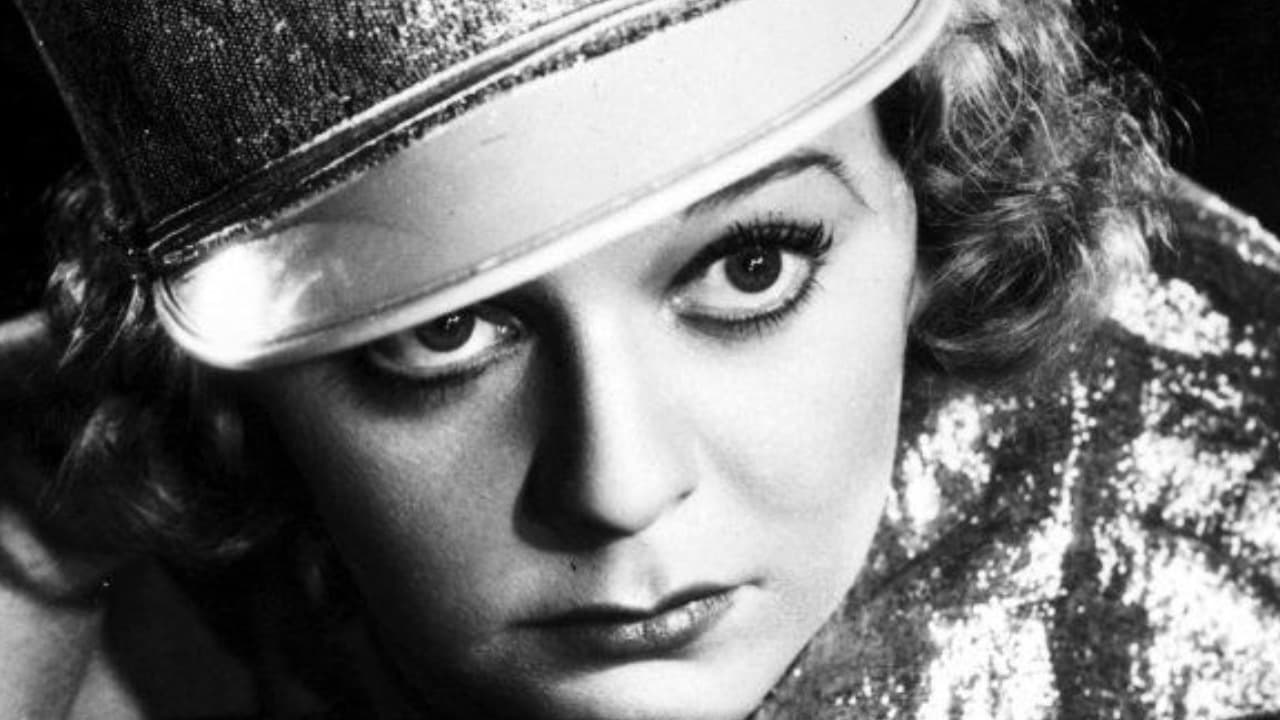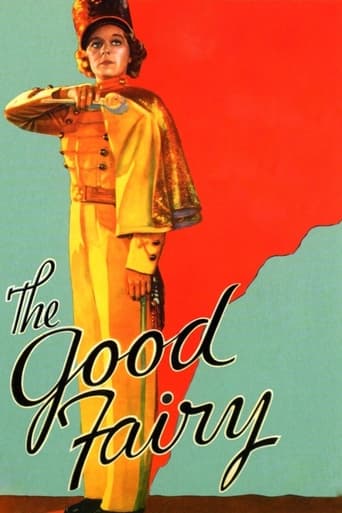

Good story, Not enough for a whole film
... View MoreUnshakable, witty and deeply felt, the film will be paying emotional dividends for a long, long time.
... View MoreThe tone of this movie is interesting -- the stakes are both dramatic and high, but it's balanced with a lot of fun, tongue and cheek dialogue.
... View MoreBlistering performances.
... View MoreThere is much of Jane Eyre in this. A minor version had been made the previous year and flopped. What if you pulled out all the social commentary that Bronte used to shape her story and just built something on the ability of an innocent to make a good story? Then you can spindle the social observations afterward. I suspect that is something like what happened here.The setup is simple. Orphan girl, newly a woman. Famed for storytelling in the orphanage. Selected to be an usher at a movie theater, she enters both the world of sexual advances and movies (analogously). Her strength and endearing manner give her the power to create a good story, which happens to be the one we see.Yet another rather profound narrative experiment from the period when films were trying to discover what they were.The girl is a brilliant redhead, though a viewer would not know except through fan magazines.Ted's Evaluation -- 2 of 3: Has some interesting elements.
... View MoreCorny movie, dated, but cute, watchable but if you fall asleep don't be surprised. It is amazing how the name Preston Sturges sets up certain expectations for a movie, that it will be fast-paced and crammed with witty, funny dialogue, but alas reputation, like many other aspects of human life, may not be completely consistent with reality. This is a good movie but it is obscure and for good reason. The movie has an excellent cast but the movie's premise is so simplistic that it calls into question whether the audience in 1935 was so naive. This story presents a rather bizarre portrayal of life in an orphanage and the transition from ward to the government to independent woman. Also, the transplantation of Hollywoodish scenery and dialogue onto a story originally set in Hungary is a bit of a stretch but nevertheless it's a good movie. Herbert Marshall, Frank Morgan and Reginald Owen give excellent performances, which is further evidence that the quality of acting was far superior than what it is today, which isn't surprising given Hollywood's obsession for special effects with its firm reliance on the computer to rescue movies from total oblivion.
... View MoreBefore "Christmas In July" and "The Great McGinty" Preston Sturgis was a screenplay writer - one of the two great screenplay writers of the 1930s who graduated into very respectable directorial careers (the other being Billy Wilder, of course). Oddly both men cut their abilities at Paramount, not MGM. And both claimed that they were dissatisfied with the ways two of their best scripts were shot ("Easy Living" and "Remember The Night"), butchered (in their opinion) by the same director: Mitchell Leisin.Actually this was hardly fair to Leisin. If he did not have quite the cynical bite of either Sturgis or Wilder, he did not ruin their screenplays. He tended to make characters more human. Moreover, it is hard to support the comment about "Easy Living", when Leisin is credited (not Wilder and Charles Brackett his partner) with the most famous scene in that film: Leisin created the Automat scene where all the doors of the Automat food compartment fly open and all the bums in New York City run amok getting free food! This was not ruining a film, but improving it.Sturgis' screenplays were an interesting group. He wrote the screenplay for the Edward Arnold biography "Diamond Jim". He also did the Ronald Colman - Basil Rathbone film "If I Were King". He also did the Bob Hope - Martha Raye - Andy Devine comedy "Never Say Die". His screenplay work was generally quite sharp, and never sharper (prior to his own directing) than in "The Good Fairy".Margaret Sullavan plays Luisa Ginglebusher, who has just come of age, and has to leave the convent school presided over by Beulah Bondi. Luisa has been well brought up, and she is determined to live up to the best traditions. One thing is her determination to do good. Naturally, she is like a wide eyed lamb in a world of wolves. Sure enough she soon is taken (briefly) under the wing of an arch-wolf, Cesar Romero. But she finds she has attracted a good fairy of her own, Detlaff the waiter (Reginald Owen). If one thinks of Owen solely from his nice performance as Ebenezer Scrooge, it is wonderful to see him kick off his comic shoes and timing in a film like this. He sees Luisa as a decent girl, and she is making sure she remains that way in the wilds of the wicked city of Budapesth. But Luisa sees herself as a good fairy, and she picks, out of a telephone book, a name of a person to help. It is a lawyer, Dr. Max Sporum (Herbert Marshall - complete with chin whiskers). Sporum is a fiercely honest attorney (which explains the lack of clients). Luisa, when she discovers this, decides to encourage customers. She has attracted one old goat: Konrad a rich meat factory owner (Frank Morgan). She manages to convince him that she is married to the struggling Sporum, and that she would do anything to help her "husband" make a success. Konrad takes the hint, and goes to Sporum to make him his lawyer. Sporum is amazed but thinks Konrad was told about him by an old law professor, Dr. Stanislav Metz (Eric Blore). When Luisa talks to him about his success afterward Sporum is still in a state of euphoria (he took some of the first retainer money to buy a pencil sharpener). Luisa does suggest some new clothing and he shave off his whiskers.Eventually Luisa is in over her head, as she tries to balance Sporum (who she is falling for), Konrad, and the guardian angel Detlaff. And it's done quite well. Look at the scene where Detlaff is serving Konrad and Luisa in the restaurant and keeps knocking every possible dish Konrad suggests they order ("What kind of restaurant is this?", a perplexed Konrad/Morgan asks). The scene where Marshall has to shave his beard (Luis Alberni is the barber - also with a beard) is brief but funny, as Alberni tries to talk Marshall out of the sacrifice. He just barely loses.It was a wonderful comedy, hinting at what the writer was capable of. And with names like Sporum and Ginglebusher future Sturgis names like Kockenlocker and Hackensacker were just around the corner. One only regrets that none of the leads, except Cesar Romero, ever appeared in a Sturgis film when he was directing them.
... View MoreDon't let the title or director give you the wrong idea; THE GOOD FAIRY is a snappy and sophisticated example of the kind of civilized lunacy for which screenwriter (and later director) Preston Sturges became so well-known. Yes, it's adapted from a Hungarian play, and yes, it's directed by William Wyler, but Sturges' creative influence is evident - even dominant - throughout. Though Wyler did make the occasional foray into lighter material ("Roman Holiday," "How To Steal a Million"), he's mostly associated with intelligent drama, and here one can almost sense idea man Sturges lurking just behind him, whispering, "Hey, Willie, how about this....?" There's so much about this picture that is prototypical of later Sturges classics such as "The Miracle of Morgan's Creek" and "Unfaithfully Yours." Indeed, THE GOOD FAIRY utilizes a plot device that was later modified for "The Palm Beach Story," wherein Claudette Colbert tries to get a millionaire to enrich her husband by pretending he's not her husband. Here, Margaret Sullavan tries to get a millionaire to enrich a complete stranger by pretending the stranger IS her husband. Only Sturges could make such near-insanity seem almost logical.There's not much point in synopsizing the plot; it's rather like a benign little tornado that sweeps the characters - and the viewer - up with it; there's nothing to do but surrender and see where it will touch down next, and what happens when it does. Let it suffice to say that, if you're any kind of Sturges fan, you'll find the ride delightful. It's no surprise that winsome Sullavan, blustery Reginald Owen and the eminently reliable Alan Hale handle the material so deftly, but even normally serious players such as Herbert Marshall and Beulah Bondi exhibit understated but devastating comedy chops. Special mention must be made of Eric Blore (whose tipsy descent of a brief flight of stairs is nothing short of a miniature comic ballet) and Frank Morgan, at his flustered best, giving a performance of such sustained energy and velocity that (as my viewing companion said) he must have had to lie down for a rest after every take. An odd little sidelight: quintessentially American players Sullavan and Morgan made exactly three pictures together, in two of which they played Hungarians (this one and "Shop Around The Corner"), with the story taking place in Budapest. (In the third - "The Mortal Storm" - they played Germans in a small Alpine town.) Just one of those curious bits of trivia.As noted in other comments, this gem of a film is apparently little known or remembered. Perhaps its release on DVD will accord it the attention and praise it so richly deserves. Do yourself a huge favor and get your hands on it right away. I saw it just a week ago and am already looking forward to watching it again.
... View More